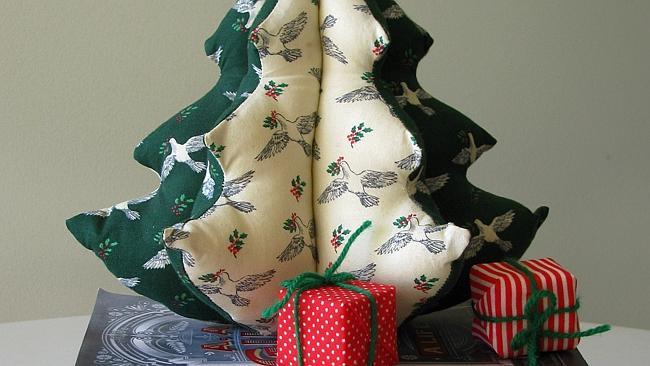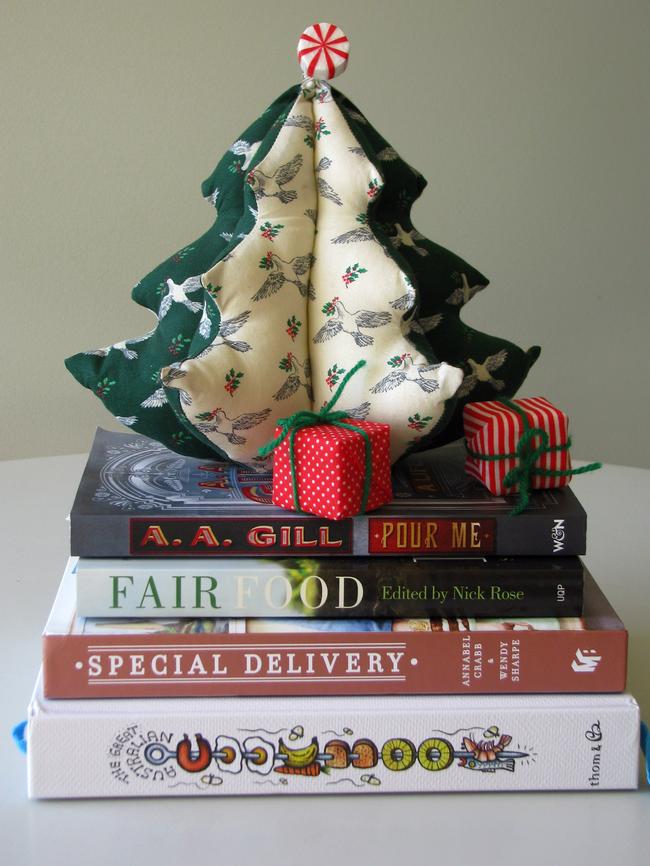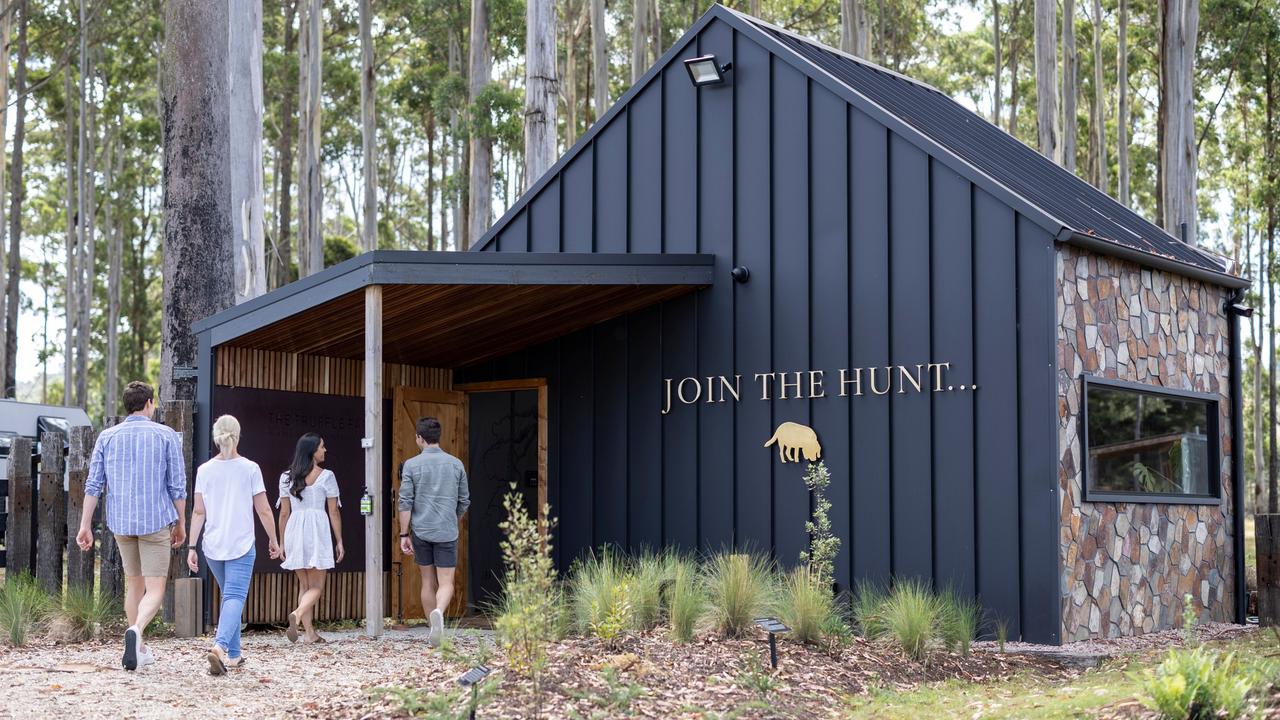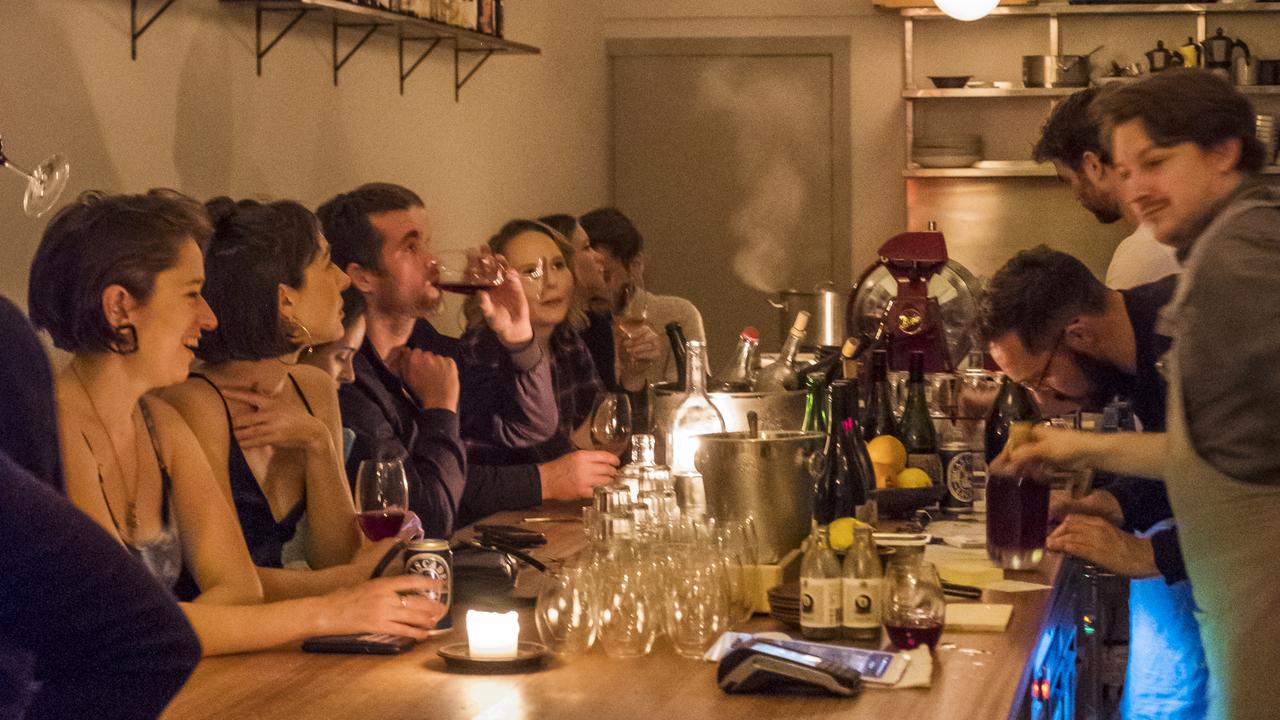Taste: Hungry for Christmas ideas? Yule find them here
COOKBOOKS are never just stocking fillers – used correctly they become more than welcome stomach fillers, writes ELAINE REEVES.

Food and Wine
Don't miss out on the headlines from Food and Wine. Followed categories will be added to My News.
A BRIEF of “what do you cook for the people you love” creates a banquet that defies categorisation when 100 cooks contribute.

Editors Helen Greenwood and Melissa Long say they got nary a knock-back from the cooks, bakers, artisans and growers they approached to be in The Great Australian Cookbook(PQ Blackwell through The Five Mile Press $49.95). Then began a six-month journey to photograph every contributor wherever they were in Australia.
Locals are Jon Healey at Pyengana Dairy, who gives us beef and cheddar pot pie, and Ross O’Meara from Bruny Island Food, who slow cooks a pork shoulder.
Jay and Emma Patey, of the Pigeon Hole in Hobart, supply a lamington recipe. Rodney Dunn, of The Agrarian Kitchen in Lachlan, contributes apple and berry crumble with vanilla custard, while David Moyle leaves the kitchen at Franklin in Hobart to knock up a wood-grilled calamari salad at a bush shack.
There are such local food heroes from every part of Australia as well as all the familiar big names.
And all the styles that contribute to the Australian table are there, from nanna to nonya, Syria to Sri Lanka.
We are familiar now with Annabel Crabb bringing dessert when she quizzes politicians in their Kitchen Cabinet comfort zones, an “accidental second career” for the journalist.
Crabb and her friend Wendy Sharpe have known each other since they were toddlers and often managed to live near each other “to facilitate the tottering transport of cakes, pies and structurally inadvisable salads”.
Their book, Special Delivery (Murdoch Books $39.99) contains food to go. Crabb says her desserts for pollies signify “I come in peace”, but there is also food to take to a party, the sick bed or new mum.
It’s free of meat dishes and heavy on sweet treats.
Each recipe — for savoury breakfast bread-and-butter pudding, “jaunty” polenta muffins, a lemon verbena posset, grape and mandarin tartlets or a chocolate pomegranate cloud cake, contains not only the method but instructions for its transportation.
You can’t make a living off 80ha, all Michael Crofton’s experienced farmer neighbours told him when he bought land near Canberra 14 years ago.
If they were right, “What was wrong with the food and agricultural system that would make this the case,” he asked.
He did make the farm work — by diversifying, running sheep, cattle, pigs and chickens, keeping bees and having three different kinds of fish in the dams. But searching for the answer to his original question saw him help set up the Australian Food Sovereignty Alliance and eventually to represent Australia at international forums.
We have become familiar with the concept of food security, but one can be food secure in jail, Crofton points out. Food sovereignty means owning the food system not merely knowing you’re OK for your next meal.
Crofton is one of 10 people who tells their story in Fair FoodUQP $29.95), edited by Nick Rose, who knows better than to concentrate on dispiriting facts (such as 70 per cent of Australian farms are viable only because of off-farm work).
It is a book of personal stories that colour an international movement. Supermarket Monsters (Redback, $19.99), by Malcolm Knox, looks at the flip side — what happens when corporations, not farmers, control the food supply.
Anyone familiar with A.A. Gill’s restaurant reviews in The Sunday Times knows you can get more than two-thirds of the way through before the food gets a mention — and that there is never a mention of the wine.
Sixty-something Adrian Gill is closer to his last breath than his last drink he says in Pour Me: A Life(Hachette Australia $32.99).
The stage where alcohol “relaxes your shyness and natural reserve so you can feel socially optimistic in a room, can make a pass” is just the free offer to snag a punter, he says of a decade of drinking.
Sobriety comes, and we get to the rest of his life, including his own cooking.
Gill completely lacks the earnestness of that other AA, as with his restaurant reviews, the discourse is everything and the telling superbly written.


